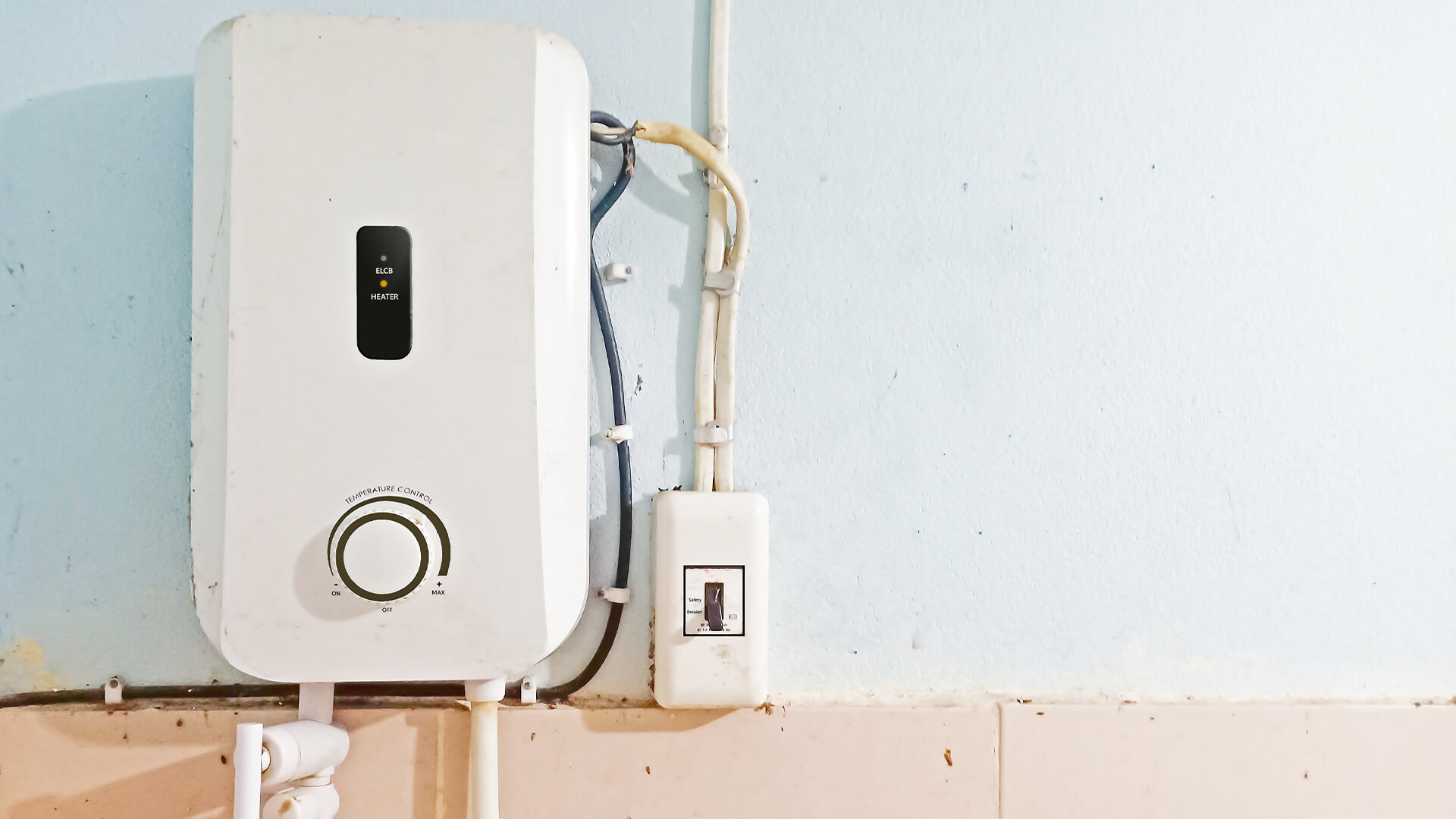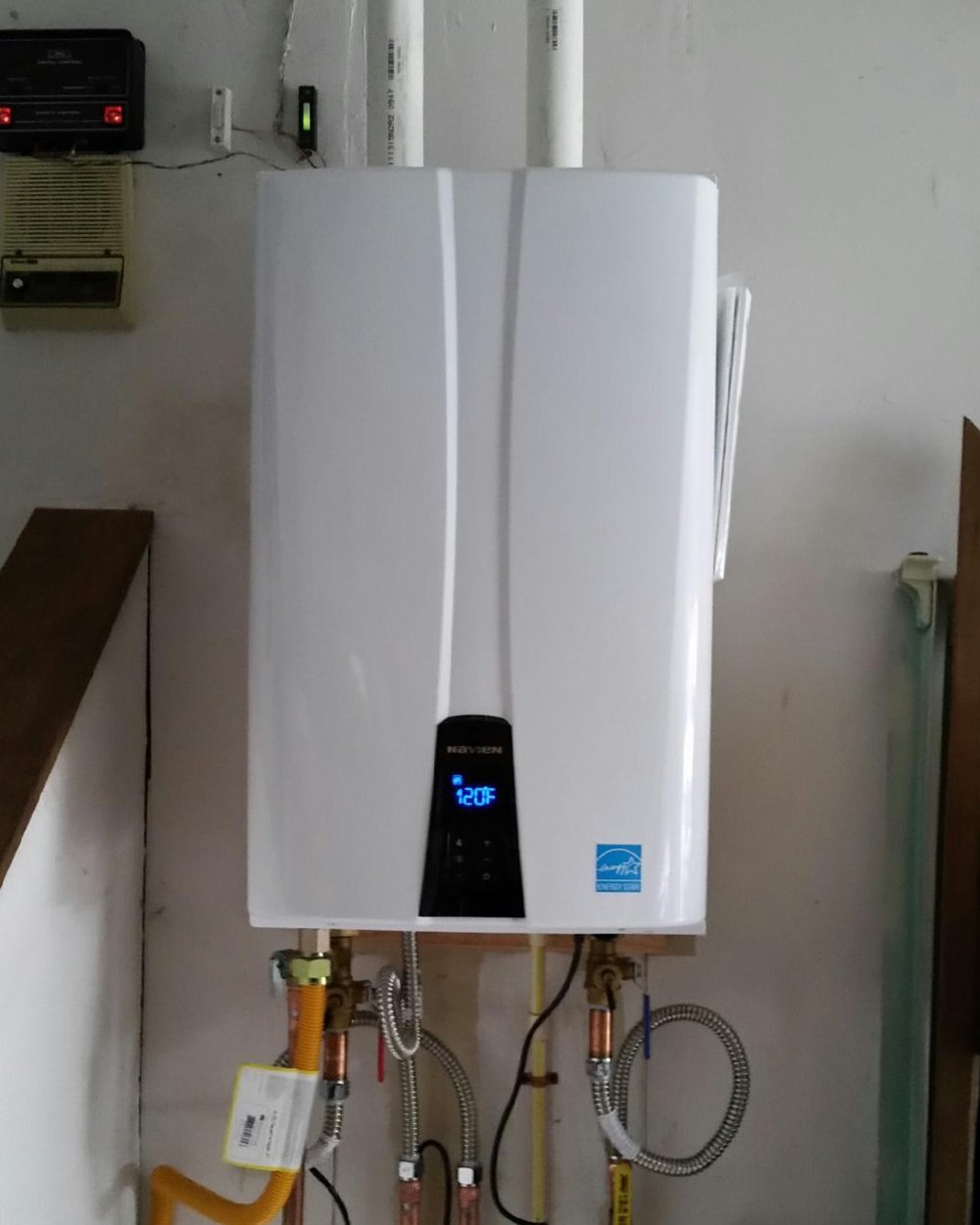Our Route To Securing The Benefits Of Tankless Water Heaters
Our Route To Securing The Benefits Of Tankless Water Heaters
Blog Article
What're your thoughts concerning Pros and Cons of Tankless Water Heater?

In a globe where ease and performance reign supreme, it's not a surprise that house owners are frequently in search of smarter means to manage their home's power usage and comfort. One innovation that has actually steadily gained popularity is the tankless water heater. However just what makes these systems attract attention from the traditional tank-based models a lot of us matured with? Allow's dive in and explore the advantages of tankless water heaters, helping you determine if it's time to make the switch in your house.
Introduction
Image this: you step into the shower after a long day, expecting a relaxing cascade of hot water, just to be welcomed by icy droplets because the last individual used all of it up. Noise familiar? Typical water heaters keep a set amount of hot water, implying you go to the mercy of that tank's supply. Tankless systems, on the other hand, warm water as needed. Say goodbye to running out mid-shower, say goodbye to wrestling with timetables simply to ensure hot water is readily available.
Recognizing Tankless Water Heaters
What Are Tankless Water Heaters?
Tankless hot water heater, often referred to as on-demand or instantaneous water heaters, supply hot water just as it's required. As opposed to saving gallons of pre-heated water, these units kick into action the minute you activate the faucet. Water travels through a warmth exchanger, heating up in real-time, indicating you obtain an undisturbed circulation of warm water without the requirement for a huge tank resting idly by.
Exactly how Do They Differ from Typical Solutions?
Standard heating systems hold a storage tank of hot water, making use of power to maintain that container at a regular temperature level. Tankless units remove the standing supply, minimizing thrown away power and the bulky impact of a huge cyndrical tube. Essentially, you're updating from a "accumulation" attitude to a "made-to-order" technique.
Typical Kinds Of Tankless Units
Tankless hot water heater generally can be found in 2 varieties: gas and electric. Gas versions often tend to deliver greater flow prices, suitable for bigger homes, while electrical models often serve smaller homes and are normally less complicated to set up. In addition, some systems are created for point-of-use (offering one fixture) while others can manage the whole home's hot water requirements.
Secret Advantages of Tankless Hot Water Heater
Power Effectiveness and Price Cost Savings
No more warming a titan tank's worth of water and keeping it cozy all the time. Tankless heating units minimize standby power losses, which can decrease utility expenses. While the first cost could be higher, the long-term financial savings usually warrant the investment.
3. Space-Saving Style
If your home is short on storage, removing the bulky storage tank frees up valuable room. Tankless units are portable and can typically be mounted on walls, stashed in corners, or installed in limited utility closets without gobbling up the entire space.
4. Longer Life expectancy
A well-maintained tankless hot water heater can outlast its tank-based relative. Typical containers may last 10-15 years, while tankless versions can keep downing along for two decades or even more, making them a solid investment in time.
1. Countless Warm Water Supply
Ever had to schedule showers so every person gets their reasonable share of hot water? With tankless, that becomes a distant memory. As long as the heating system's flow ability isn't surpassed, you can take back-to-back showers without becoming a popsicle.
5. Improved Water Top Quality
Storing water in a tank can in some cases cause sediment accumulation or a slightly "off" preference. With tankless systems, fresh water is heated up instantly, decreasing the opportunities of sediment build-up and potentially providing cleaner-tasting water.
Factors to consider Before Changing
Though the benefits are compelling, it's smart to think about a few elements before totally committing.
Assessing Your Home's Water Use Patterns
If your house simultaneously uses numerous components with high hot water demand, ensure the unit's flow rate fulfills your needs. Knowing your usage patterns helps you select the right dimension and kind of tankless heater.
Upkeep and Treatment Tips
Tankless systems are reasonably low maintenance, but they aren't set-it-and-forget-it home appliances.
Regular Cleaning and Descaling
Tough water minerals can accumulate in the heat exchanger, affecting effectiveness. Regular descaling (frequently advised every year) maintains the device performing at peak performance.
Yearly Professional Assessments
A yearly checkup from a professional guarantees minor concerns are caught early. They'll examine the device's performance, try to find leaks, and aid keep ideal efficiency.
First Investment Expenses
Tankless heating systems generally feature a higher ahead of time cost. Between the unit itself and prospective setup alterations, the first price might give you sticker shock. But bear in mind to view it as a long-lasting investment.
Installation Requirements
Relying on your home's framework, you may require added electric capability or gas line upgrades. Ensure you recognize the setup demands and seek advice from a professional to stay clear of surprises.
Making Sure Appropriate Ventilation
For gas designs, appropriate air flow is essential to safely get rid of exhaust gases. Make certain airing vent systems are tidy and properly installed to prevent any potential safety and security hazards.
Comparing Different Brands and Models
Not all tankless water heaters are created equivalent.
Investigating Trusted Makers
Try to find reputable brand names with a background of creating quality systems. A dependable maker often offers much better consumer assistance and longer warranties.
Installation: Do It Yourself or Expert?
While some home owners relish tackling jobs themselves, tankless installation may not be the most effective time to burst out the toolbox.
Pros and Cons of DIY Setup
A do it yourself install might conserve cash, however it includes risks. Wrong setup can lead to ineffectiveness or safety and security problems. If you're handy and have experience, it may be viable-- yet wage care.
Reading Reviews and Individual Responses
Individual evaluations and responses from next-door neighbors or friends who have gone tankless can use beneficial insights. In some cases, real-life experiences can be a lot more telling than advertising sales brochures.
When to Call a Professional Plumbing Technician
For the majority of, calling a pro makes certain every little thing's done appropriately. A specialist plumber recognizes local codes, sizing demands, and airing vent specifications, lowering the risk of problems.
Optimizing Performance
You have actually purchased a tankless system-- currently maximize its performance.
Optimal Temperature Setups
The majority of people establish their devices between 120-140 F. Readjusting the temperature level can boost comfort and cost savings. Experiment to discover a pleasant place that doesn't throw away energy.
Pairing with Low-Flow Fixtures
Want to stretch your system's capacities? Think about setting up low-flow showerheads and taps. They reduce water use, allowing your tankless system to provide a constant stream of warm water without stressing.
Environmental Impact
Tankless water heaters line up with greener living goals.
Reduced Carbon Impact
By using much less power and only heating water as required, tankless systems can decrease your home's carbon footprint, reducing your ecological influence.
Saving Natural Resources
Less energy intake and much less wasted warm water convert right into fewer natural deposits being made use of, an environmental win-win.
That Benefits Most from Tankless Heating units?
The elegance of tankless heating units is that they can match a range of households.
Big Family Members vs. Single Owners
Large families could love the countless hot water supply, while solitary residents value the power savings from not heating up a whole container for just a single person's early morning shower.
Property Owners with Limited Area
If your home is short on square footage, shedding the cumbersome storage tank frees up space for other essentials-- or perhaps simply more breathing space.
Eco-Conscious Consumers
Going tankless aligns with eco-friendly worths, guaranteeing you're not wasting energy or sources.
Future Fads in Tankless Water Heaters
The world of home devices is ever-evolving, and tankless hot water heater are no exemption.
Advancements in Modern technology
R&D is constantly boosting heat exchangers, making units more reliable and durable. Future models may be also quieter, more small, and far better matched for varying environments.
Smart Home Integration
Imagine readjusting your water heater's temperature level via an application or receiving upkeep notifies on your phone. As smart home tech breakthroughs, we'll see even more connectivity and benefit.
Final thought
Choosing a tankless water heater is greater than simply updating your home's warm water system; it's investing in long-term convenience, power efficiency, and a greener lifestyle. By considering your home's water usage, being mindful of installation demands, and dedicating to normal upkeep, you can take pleasure in a stable stream of hot water without the baggage of a bulky container. As innovation evolves, you can look forward to also smarter, much more reliable tankless options that not only make your life easier but likewise profit the planet.
Six Benefits of a Tankless Hot Water Heater
Continuous hot water. Large families know what a pain it is to hop into the shower and get blasted with cold water. With a tankless hot water heater, this doesn't happen as long as you install the right size tank. Even if you don t have a large family, a tankless hot water heater allows you to use multiple appliances at once without running out of hot water. Reduced energy bill. Because tankless heaters are essentially "off" when the water tap is not on, they use less energy overall. In fact, an ENERGY STAR-qualified tankless hot water heater can use 25-40% less energy than a conventional water heater, and save the average family $100 or more annually. Longer life. Get more bang for your buck with a greater lifespan. Specifically, conventional hot water heaters last about 10-13 years compared with up to 20 years for a tankless hot water heater. Less space. Did you know that tankless hot water heaters can be hung on a wall almost anywhere in your home? Plus, at 28" tall by 20" wide and 10" deep, a tankless hot water heater takes up a lot less space than a conventional hot water heater, which is 60" tall and 24" wide. Good for the environment. In addition to reducing the amount of energy used, most propane-fired tankless water heaters are made of recycled materials. Many conventional tanks, on the other hand, go directly to the dump once they've served their purpose. High safety ratings. Conventional water heaters are "always on" and thus pose safety risks more often than do tankless heaters, which only operate when warm water is needed. https://www.rotorooter.com/blog/water-heaters/six-benefits-of-a-tankless-hot-water-heater/

We had been guided to that editorial about from a good friend on a different domain. Do you know about another person who is fascinated with ? Feel free to promote it. Thanks so much for going through it.
Book A Free Estimate Report this page